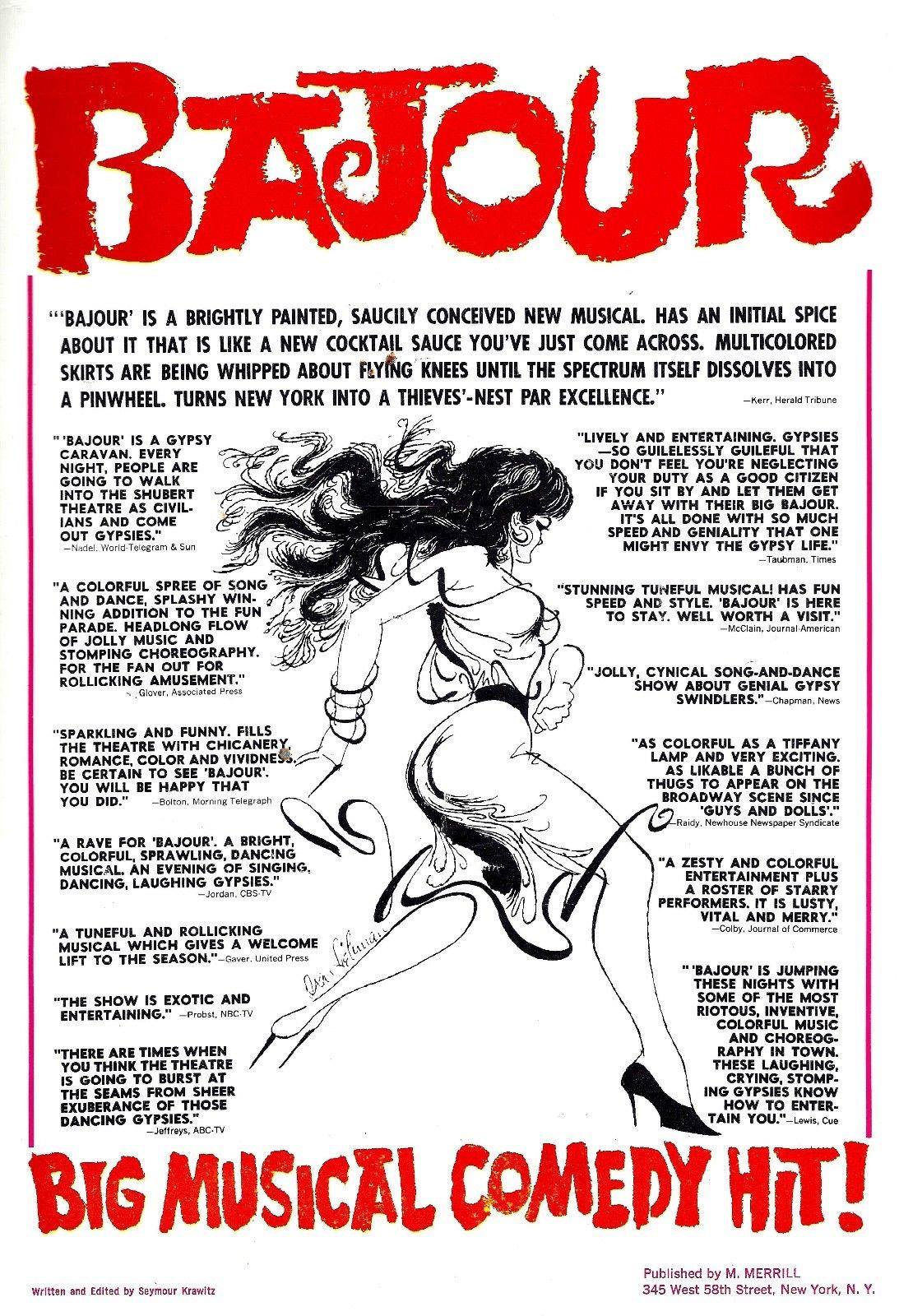Remembering Bajour
In 1964, a musical opened on Broadway that neither a runway hit, nor was it a calamitous flop. The musical drew its inspiration from two Joseph Mitchell New Yorker short stories: “The Gypsy Women” and “The King of the Gypsies”. The score for the show was written by Walter Marks (who is probably best known for writing the song standard “I Gotta Be Me” recorded by the likes of Tony Bennett and Sammy Davis, Jr.) and a book by playwright and screenwriter Ernest Kinoy. The musical was the also-ran Bajour, a show that, despite some detractions, also had much to recommend, particularly in Marks’ lively score.
What is a “Bajour” you might ask? It has been suggested that the word comes out of the Romani language for a con or a swindle. Politically incorrect and insensitive as this story might be, the musical is basically about a band of nomadic gypsies of the Dembeschti tribe trying to pull off a bajour to help finance the purchase of a bride from the Moyva King of Newark. The story also involves a New York University anthropology student who is researching the customs of the tribe, and, in her efforts to better understand their culture, finds herself (and her mother) embroiled in the scam. Obviously, the show’s plot and characters play into stereotypes and misconceptions that are recognized as offensive.
Bajour opened at Broadway’s Shubert Theatre on November 23, 1964 and then transferred to the Lunt-Fontanne Theatre where it concluded its run after 232 performances. Lawrence Kasha directed the show, and Peter Gennaro provided the choreography. The cast included three talented leads in the persons of Nancy Dussault, Chita Rivera, and Herschel Bernardi. Supporting players included Gus Trikonis, Herbert Edelman, Mae Questel. Many of the ensemble would also go on to do great things including Paul Sorvino, Harry Goz, Michael Bennett, and Leland Palmer. Bajour received two Tony nominations, one for Dussault in the Best Actress category, and one for Gennaro for Best Choreography.
Composer Marks and book writer Kinoy would go on to write another Broadway musical together, the 1968 Steve Lawrence and Eydie Gorme star-driven Golden Rainbow which lasted 383 performances. That, too, features a score that is worth checking out.









